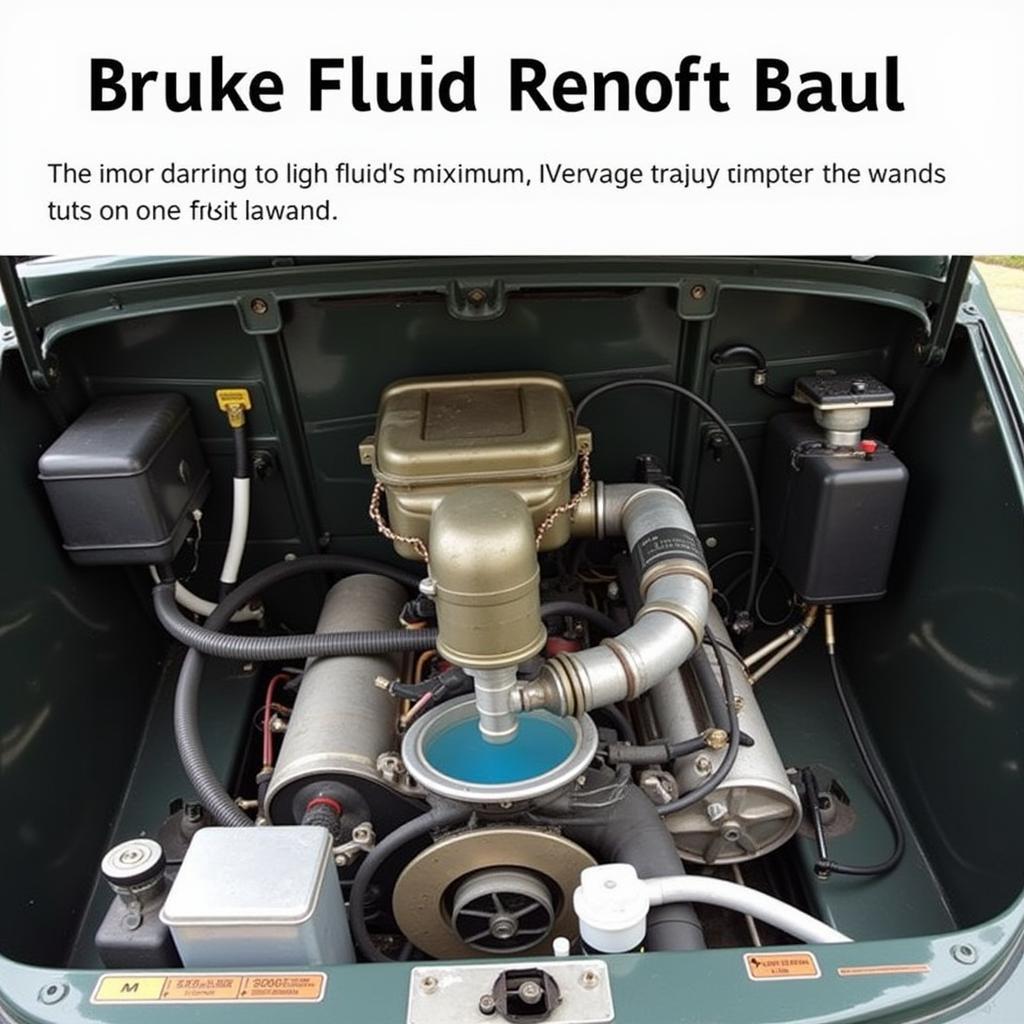The brake warning light on your VW Type 3 is a crucial safety feature that shouldn’t be ignored. When illuminated, it signals a potential problem with your braking system that requires immediate attention. While it can be alarming to see the warning light, understanding the common causes can help you troubleshoot the issue effectively.
This comprehensive guide will walk you through the possible reasons behind a VW Type 3 brake warning light and provide potential solutions to get you back on the road safely.
Decoding the Warning: What Triggers the Light?
Your VW Type 3’s brake warning light is connected to several components within your braking system. When the system detects an abnormality, the light illuminates to alert you. Here are the most common culprits:
- Low Brake Fluid Level: The most frequent cause is low brake fluid, often due to worn brake pads or a leak in the system.
- Worn Brake Pads: Brake pads have wear indicators that contact the rotor when they become too thin, triggering the warning light.
- Faulty Brake Fluid Sensor: A malfunctioning brake fluid level sensor can send inaccurate readings, causing the light to illuminate even with sufficient fluid.
- Issues with the ABS System: While less common in a Type 3, problems within the Anti-lock Braking System (ABS), such as a faulty wheel speed sensor, can also trigger the brake warning light.
- Electrical Malfunctions: Wiring issues, a blown fuse related to the brake system, or a faulty brake light switch can also be responsible for the warning light.
Troubleshooting the VW Type 3 Brake Warning Light
Before you start, remember that safety is paramount. If you’re uncomfortable working on your vehicle, it’s always best to consult a qualified mechanic, especially for brake-related issues.
-
Check the Brake Fluid Level:
- Park your car on a level surface and engage the parking brake.
- Locate the brake fluid reservoir under the hood, usually a translucent container with a black cap.
- Check the fluid level against the “Min” and “Max” markings on the reservoir.
 VW Type 3 Brake Fluid Reservoir
VW Type 3 Brake Fluid Reservoir
-
Inspect the Brake Pads:
- If possible, visually inspect the brake pads through the wheel spokes. Look for significant wear or if the pad material is close to the metal backing plate.
-
-
Examine for Visible Leaks:
- Carefully inspect the area around the brake master cylinder, brake lines, and near the wheels for any signs of fluid leaks. Look for wet spots or drips.
What to Do if the Light Persists
If you’ve checked the brake fluid, inspected the pads, and don’t see any obvious leaks, but the light remains on, further diagnosis is necessary. This might involve:
- Testing the Brake Fluid Sensor: A multimeter can be used to check the sensor’s functionality.
- Inspecting the Brake Light Switch: A faulty switch can cause the brake lights to stay on or not function correctly, potentially triggering the warning light.
- Scanning for ABS Trouble Codes: Using a diagnostic scanner, you can retrieve any stored ABS fault codes, providing more specific information about the issue.
Expert Insights
“It’s crucial to remember that brake fluid is hygroscopic, meaning it absorbs moisture over time,” says master mechanic Johnathan Miller. “This moisture can reduce braking efficiency and lead to corrosion within the system. Regular brake fluid flushes, as recommended in your VW Type 3’s service manual, are essential for optimal braking performance.”
2011 vw golf tdi brake fluid warning light on
When to Seek Professional Help
While some troubleshooting can be done at home, it’s vital to seek professional help if:
- You’re uncomfortable working on your vehicle’s braking system.
- The brake warning light remains illuminated after checking the fluid and inspecting for leaks.
- You experience any unusual braking behavior, such as a soft or spongy brake pedal, grinding noises, or pulling to one side while braking.
Conclusion
A glowing brake warning light on your VW Type 3 is a clear sign that your braking system requires attention. While a simple fix like adding brake fluid or replacing worn pads might resolve the issue, it’s crucial to investigate further if the light persists. By understanding the common causes and following the troubleshooting steps outlined above, you can address the problem effectively and ensure your VW Type 3 continues to deliver safe and reliable braking performance.
Remember, your safety is paramount. When in doubt, consult a qualified mechanic to diagnose and repair any brake-related problems.
